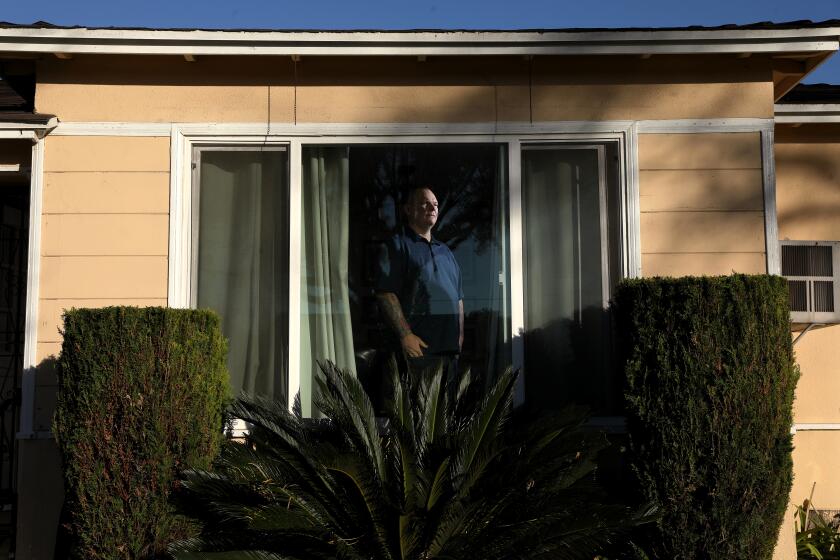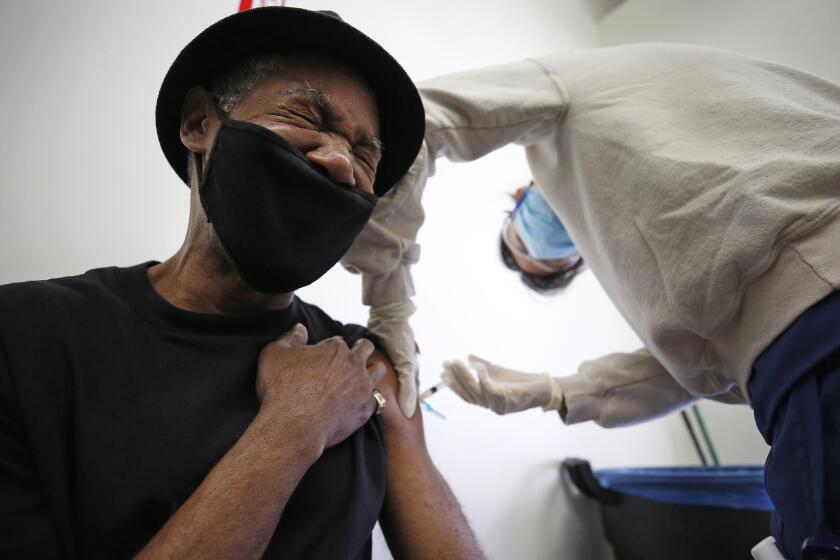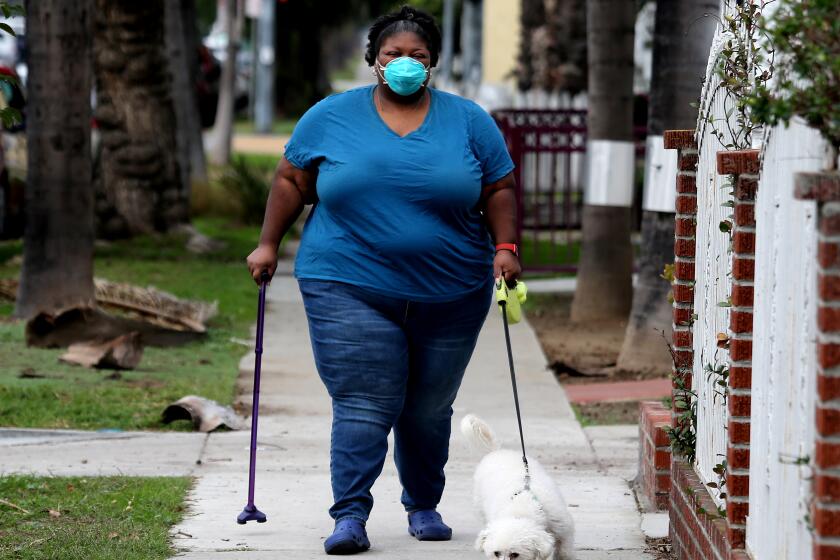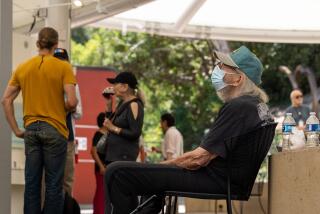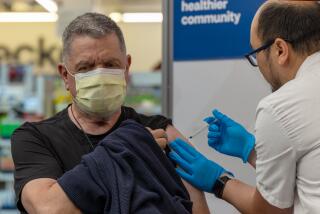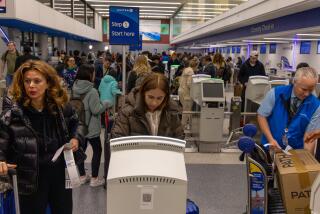‘Just living with pain’: Women’s healthcare waylaid by COVID-19 pandemic
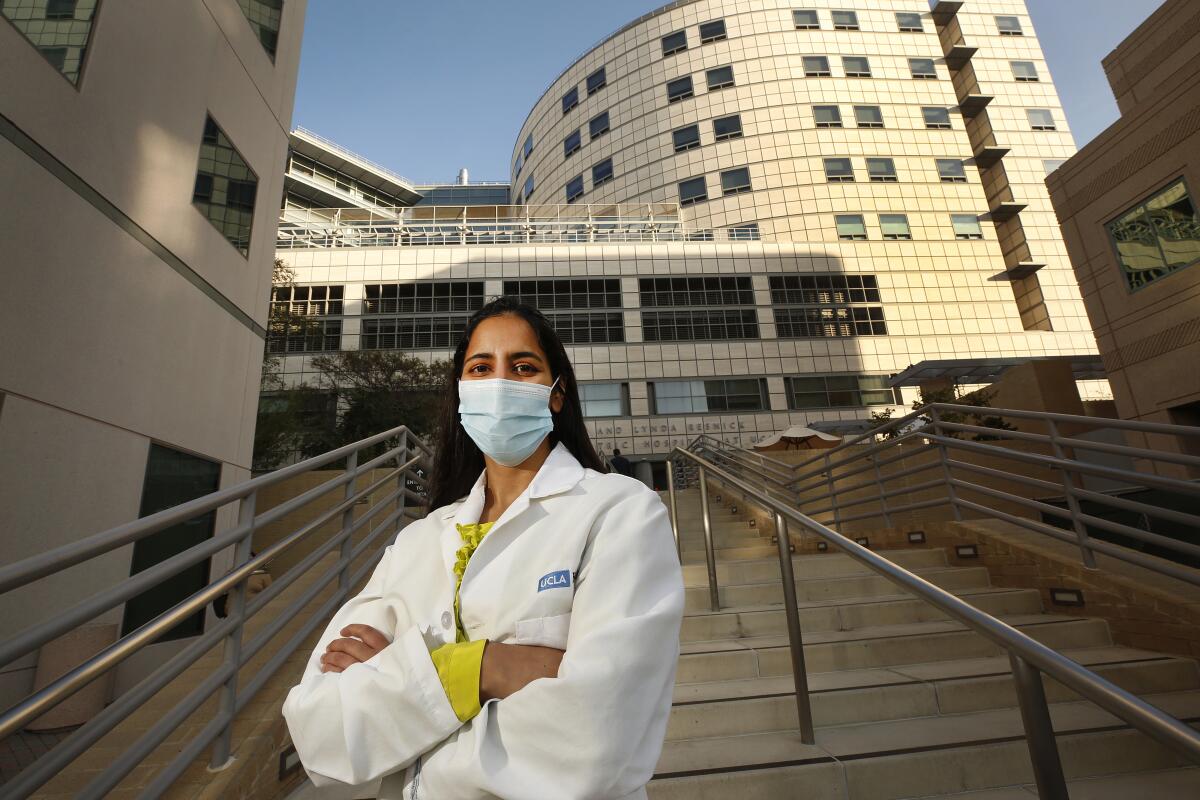
- Share via
When Stephanie Fajuri, 36, had an abnormal Pap smear a decade ago, her doctor advised her to come in for annual screenings to keep an eye on her health. She was diligent about doing so regularly — until she was confronted by a pandemic.
An appointment scheduled last summer was pushed to December, Fajuri said. By the time she finally saw a doctor, she had developed more abnormal cells and had to undergo a procedure to remove them from her cervix.
“Thankfully, I am vigilant about my health,” she said, “but this is how women develop cervical cancer.”
Like Fajuri, women across Southern California are reporting appointments delayed, exams canceled and screenings postponed because of the pandemic. Some are voluntarily opting out for fear of encountering the virus, while others have had their appointments canceled by healthcare providers rerouting resources to COVID-19 patients.
But with the outbreak in its second year, experts are sounding the alarm about the ramifications of letting women’s wellness fall by the wayside.
The problem is significant. A study published by the federal Centers for Disease Control and Prevention found that during Southern California’s first stay-at-home order, cervical cancer screenings plummeted 80% among 1.5 million women in Kaiser Permanente’s regional network.
The findings have “important public health implications,” said Chun Chao, a research scientist at Kaiser Permanente Southern California. “Delayed or missed cancer screenings could lead to increased risk of cancer and more advanced disease when diagnosed.”
Dr. Maureen Miller, an epidemic intelligence service officer at the CDC and one of the study’s lead authors, said cervical cancer screening rates were generally the same year over year, so the change between 2019 and 2020 marked a “substantial difference.”
“We’re not only worried about cancers, we’re worried about pre-cancers,” Miller said. “You could potentially have a serious disease developing in your cervix that you might not be able to feel in your body…. It’s really important.”
With many hospitals packed with COVID-19 patients, others with chronic illnesses have had procedures postponed, causing heartbreak and stress.
Cervical cancer was once one of the most common causes of cancer death for American women. The rate dropped significantly when routine screening became more widespread, and it is now estimated that up to 93% of cervical cancers are preventable, according to the CDC.
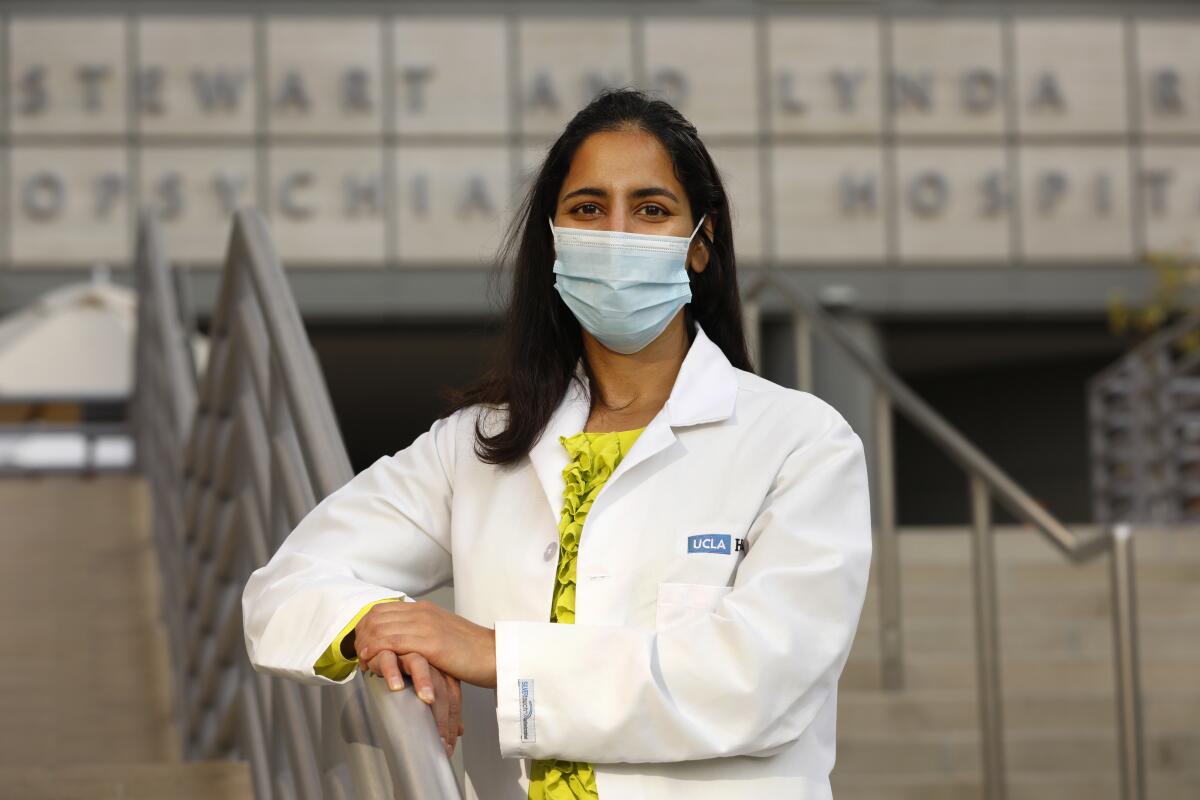
“Screening is so important,” said Dr. Ritu Salani, an OB-GYN at Ronald Reagan UCLA Medical Center in Los Angeles. “If we don’t catch it now, it may present at more advanced stages when it’s more challenging to treat, or more aggressive therapies might be needed, and with poorer outcomes.”
And it’s not just cervical cancer: Mammograms, fertility treatments and even pain prevention procedures have been waylaid by the pandemic, several women said. In April, the CDC and the Centers for Medicare and Medicaid Services both published guidelines recommending the postponement of elective and non-urgent procedures, including “low-risk cancer” screenings, amid the first wave of the pandemic.
Heidi Putallaz, 38, of Santa Clarita said her doctor recommended a follow-up mammogram and ultrasound after discovering a spot of abnormal tissue last fall. She has been unable to find an opening until at least the end of March.
“I know it’s probably nothing,” Putallaz said, “but having lost many relatives, including my mom, to breast cancer, you do wonder if this turns out to be the worst-case scenario.”
Like Pap smears and HPV tests, mammograms can be essential in reducing the number of cancer deaths. One 2020 study published in the journal Lancet Oncology projected that delays in diagnosis and treatment during the COVID-19 pandemic could result in as much as a 9.6% increase in breast cancer deaths in the U.K. over five years.
Yet even before the pandemic, women’s wellness has often taken a back seat. Clinical trials have historically been conducted with men, and things such as seat belts, safety equipment and even office air conditioning are all designed with men’s bodies in mind. Transgender women in particular have long battled barriers to care.
That women’s procedures are regularly classified as “elective” can add to that burden, Salani said, noting that hospitals typically categorize admissions as “urgent, emergent or elective.”
Women’s wellness “is neither urgent nor emergent, but it truly isn’t something that’s optional, and that’s what it makes it sound like,” she said. “It’s unfortunate terminology.”
That lack of urgency has compounded many women’s suffering during the pandemic. Inglewood resident Maria Vasilchikova, 27, said she tried to schedule a doctor’s appointment last spring to help address issues related to polycystic ovary syndrome.
The pain she experiences is extreme, she said, requiring her to pull over if driving and sometimes causing her to vomit.
After waiting three months for an appointment, her doctor had to cancel so she could attend to COVID-19 patients at the hospital. Vasilchikova understood the reason for the cancellation — her mother is an intensive care unit nurse — but she was dismayed.
“They set back my progress by a great deal,” she said, noting that no replacement appointment was offered in its stead. “My ovary pain symptoms worsened, and there is no safe way of investigating without going into a doctor’s office.”
Other women reported similar struggles. Jewelia, 44, who asked that her last name not be used, said fibroid removal surgery scheduled at Kaiser was canceled twice because of the pandemic. While waiting for a new appointment, she was laid off from her job and lost her health insurance. She can’t afford the procedure without it.
“Here I am to this day without surgery and just living with pain,” she said.
The findings raised new concerns about inequity in the troubled rollout of vaccines for those 65 and older and add pressure on county leaders to do a better job of getting communities of color immunized.
Miller, of the CDC, said that when the first stay-at-home orders in Southern California were lifted in June, some cervical cancer screenings did resume, but at a rate about 25% below normal.
Notably, the study Miller worked on with Chao was based on data collected through September 2020 — before the crippling surge of COVID-19 that arrived around the holidays. It is likely that the next year’s data, which will include the region’s most recent stay-at-home order, will see screening numbers fall again.
“When we see the next wave of data come through, I don’t think it will drop as low as it did before, but I anticipate that it will drop,” said Lisa Richardson, director of the CDC’s Division of Cancer Prevention and Control. With only a handful of studies on the subject so far, she added, “it’s just really hard to know.”
The next barrier is for people to overcome their anxiety about seeking healthcare when they need it: Recent primary care physician data suggest that the split between patients canceling on doctors and doctors canceling on patients is about 50-50, Richardson said.
“The message is, know your own history and speak with your provider about what your needs are,” she said. “If you are higher risk for getting cancer, you should not put it off…. This [pandemic] will end, and you still want to be healthy when this is over.”
Still, many women said they have been afraid to seek care during the pandemic, especially for things that don’t feel like emergencies.
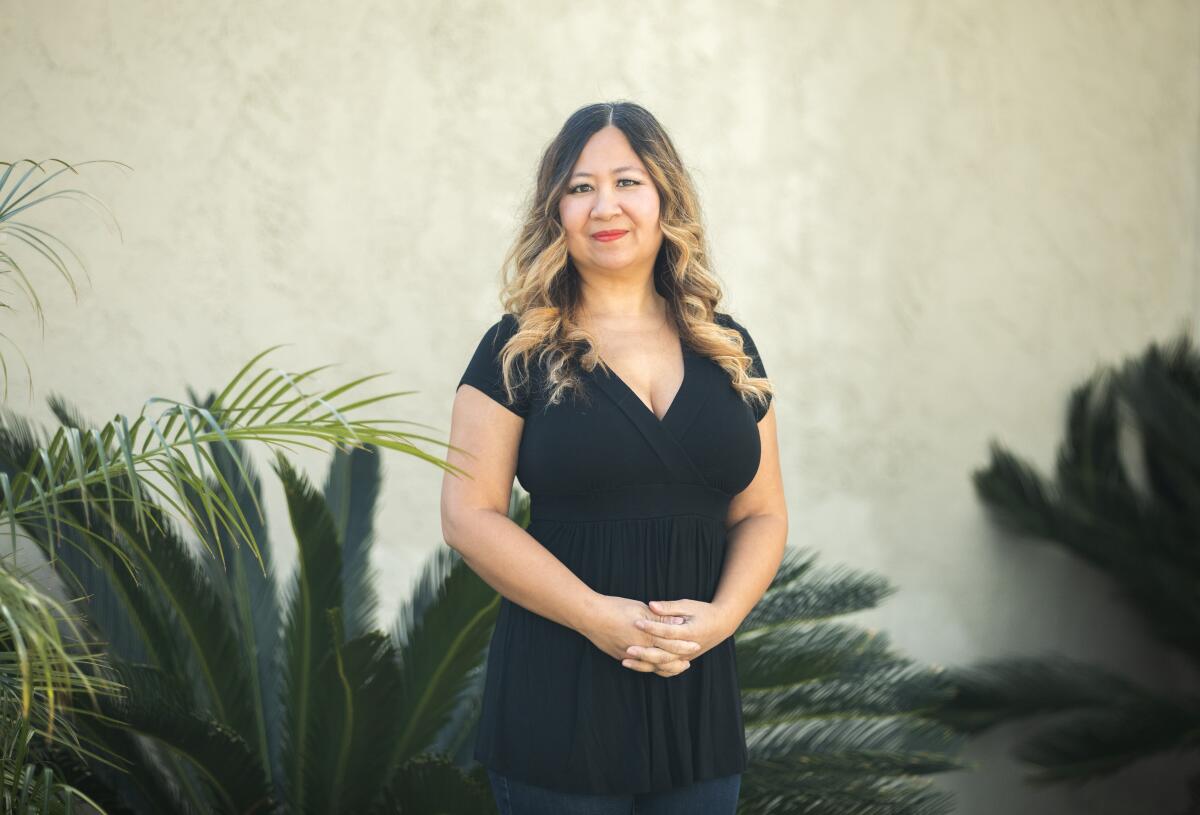
“I have a partner who is high-risk, so I don’t want to bring anything home to him,” said Sylmar resident Monica Gaya, 44, who put off scheduling a follow-up appointment after an abnormal mammogram last fall. “I feel like the risk of catching COVID is greater by going into places where people are more likely to be sick.”
Gaya, who has a family history of cancer, was “definitely concerned” about the abnormal screening but said it can be hard to put herself above all other needs.
“Women’s care is not a priority in society even when there is no pandemic going on,” she said. “The pandemic just pushes it further onto a back burner.”
Others, such as 29-year-old Raneq Barber, described similar debates about whether to seek care. Barber has asthma and high blood pressure, two underlying conditions that may increase her risk of a severe case of COVID-19. She made the choice to delay a women’s wellness appointment she had scheduled at the start of the pandemic, thinking “it’d be a few weeks or a month.”
“It’s been a year and I still don’t feel safe hanging out in a doctor’s office,” she said.
In January, more than 75 organizations, including the American Cancer Society and the National Comprehensive Cancer Network, signed a statement endorsing the goal of resuming checkups and cancer screenings during the pandemic, citing “distressing trends” that indicate many cancers are going undiagnosed and untreated.
For disabled and chronically ill Californians, Gov. Newsom’s decision to change COVID-19 vaccine priorities has sparked confusion and anger.
“We urge people across the country to talk with their healthcare provider to resume regular primary care checkups, recommended cancer screening and evidence-based cancer treatment to lessen the negative impact the pandemic is having on identifying and treating people with cancer,” the statement said.
Richardson said she is optimistic numbers will continue to improve as hospitals and healthcare facilities regain some sense of balance, and as people become more comfortable with the idea of returning to regular care.
Some women aren’t there yet.
Molly Codner, 30, has needed a checkup ever since she received an abnormal Pap smear last summer, but like many Southern Californians, the trauma of the last year still weighs heavily on her mind: Nearly a dozen people she knows have had COVID-19.
“I know I should get another check soon,” she said, “but the anxiety of COVID feels like more of a priority than the anxiety of cervical cancer.”
More to Read
Sign up for Essential California
The most important California stories and recommendations in your inbox every morning.
You may occasionally receive promotional content from the Los Angeles Times.
